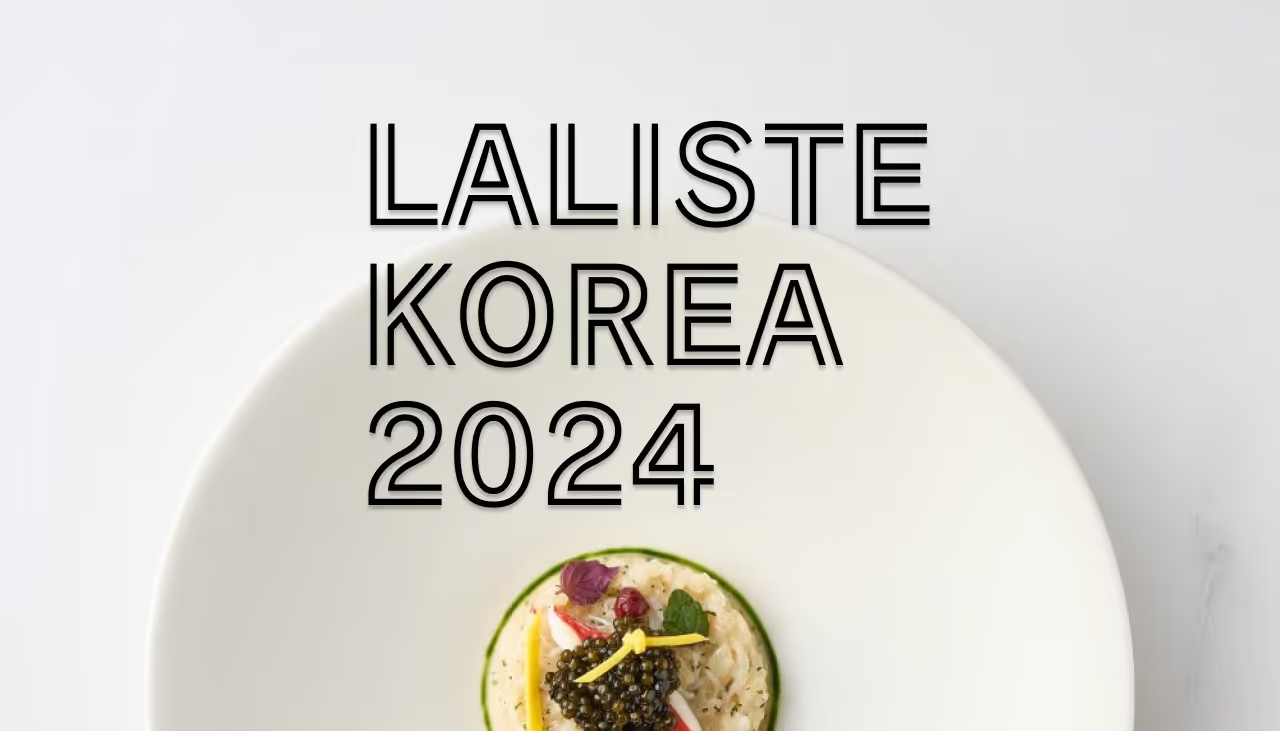
LaListe’s Special Awards for Korea celebrate a culinary culture where tradition and innovation unite, honoring chefs who preserve Korea’s soul while propelling its gastronomy onto the global stage.

Seoul has emerged as one of Asia's most dynamic culinary capitals, where ancient traditions meet cutting-edge innovation. LaListe's Special Awards for Korea celebrate this renaissance, recognizing chefs and establishments that are redefining Korean gastronomy while honoring its deep roots.
At Choi Dot, Chef Choi Hyun Seok has become the face of Korean cuisine's global evolution. His approach melds traditional flavors with modern techniques, creating dishes that feel both familiar and revolutionary. Beyond the kitchen, his television appearances have introduced Korean gastronomy to wider audiences, making him a true cultural ambassador. His dual impact—culinary innovation paired with media influence—exemplifies the modern chef's role in shaping food culture.
Chef Kang Min Goo's Mingles represents Korean cuisine's sophisticated future. The restaurant's signature "Jang Trio" showcases house-fermented sauces central to Korean cooking, while seasonal menus emphasize fresh, local produce. Kang's entrepreneurial spirit extends beyond Seoul—his international venture Hansik Goo in Hong Kong demonstrates how Korean flavors can translate globally without losing their essence.
The partnership between Chef Jeon Sung Bin and Sommelier Kim Jin Ho at Vinhão embodies the next generation's approach to fine dining. Kim's international experience—four years in Melbourne, training at Mingles, and time at Denmark's acclaimed Geranium—informs his thoughtful wine pairings. The restaurant's open kitchen and expansive windows create communal energy while maintaining sophisticated execution, proving that Korean-influenced cuisine can embrace both tradition and contemporary dining culture.
Two establishments lead Korea's sustainability movement. Green Table, under Chef Kim Eun Hee, emphasizes organic, locally sourced ingredients from nearby farms and its own gardens. Traditional Korean dishes receive modern interpretations that celebrate seasonal produce while reducing environmental impact.
At Gigas, Chef Jung Ha Wan focuses on eco-friendly practices, minimizing food waste and sourcing from sustainable producers. The menu features innovative dishes utilizing seasonal, local ingredients—from responsibly sourced meats to creative plant-based fare. Both restaurants prove that ethical dining enhances rather than compromises culinary excellence.
Seoul's dining scene embraces global excellence through local interpretation. At Bistrot de Yountville, Chef Tommie Lee brings authentic French flavors from Napa Valley to Korea's capital. Classic dishes like coq au vin and steak frites are prepared with meticulous attention to artisanal techniques and high-quality ingredients.
Sanro, led by Chef Yoo Sung Yup, offers exceptional Japanese cuisine in intimate counter service setting. Guests are greeted with sake adorned with chrysanthemum petals before experiencing high-quality ingredients like sea urchin with yuzu and daily-fresh fish selections. The chef's occasional use of charcoal grilling adds smoky depth to an already authentic experience.
Two restaurants represent Seoul's emerging dining culture. Cesta, with owner-chef Kim Sea Kyeong and executive chef Oh Yun Jong, specializes in dry-aged steaks cooked in a Josper charcoal grill reaching 450-500 degrees Celsius. The charcoal-only oven imparts distinctive smoky flavor to seafood, fish, and meats, while Asian-inspired small plates and an extensive 500-variety wine list create a resort-like atmosphere.
Deepin, helmed by Chef Yoon Namno, reinterprets Western classics through a Korean lens. Traditional Korean elements combine with pasta and steak dishes, using local ingredients to create unique fusion cuisine. The comprehensive wine selection enhances this creative approach, positioning Korean dining as globally conversant yet distinctly local.
Seoul's culinary diversity extends from street-level authenticity to luxury hospitality. Samwon Garden, under Chef Kim Hyung Seok, represents Korean BBQ at its finest—premium cuts like marinated galbi and samgyeopsal grilled over charcoal with traditional techniques and exceptional service.
At the opposite end of the dining spectrum, The Lounge at Park Hyatt Seoul offers afternoon tea that blends Korean traditions with modern techniques. Chef Lee Ji Myeong creates meticulously presented pastries, savory bites, and homemade jams served with panoramic city views—proving Korean hospitality can embrace any culinary format.
The bakery scene finds representation through Pres de moi, where Chef Yoon Hwa Young creates artisanal pastries and breads blending traditional techniques with modern flavors. High-quality ingredients and meticulous craftsmanship make each item a testament to the baker's art.
These awards reveal Seoul's culinary scene at a moment of extraordinary confidence. Korean cuisine no longer seeks validation through imitation—instead, it offers its own interpretation of global excellence while maintaining distinct identity. From fermented sauces to charcoal grilling, from traditional BBQ to contemporary fusion, Seoul's chefs demonstrate that authenticity and innovation can coexist.
The city's dining landscape reflects broader cultural shifts: a generation comfortable with its heritage yet eager to engage the world, restaurants that honor tradition while embracing change, and chefs who understand that the best way to preserve culture is to keep it alive through evolution.
Seoul has arrived not as a follower of global food trends, but as a creator of them.